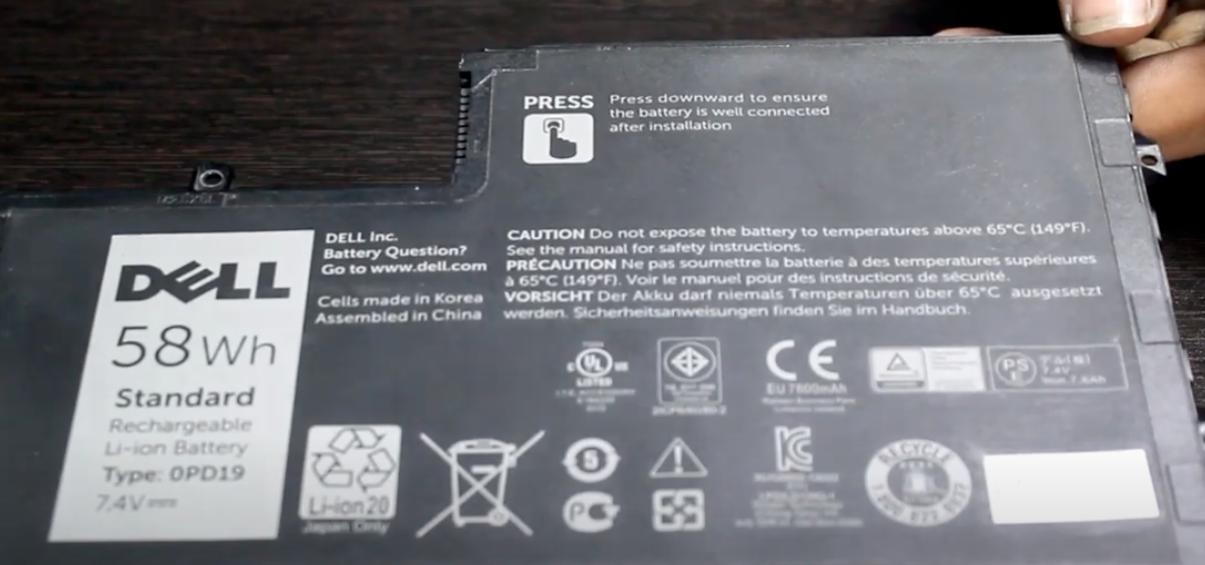Dell laptops use lithium-ion batteries, like most laptops. One type of lithium-ion battery is the lithium-ion polymer battery. Dell does not currently use this type of battery in its laptops; however, the company has said that it is investigating using them in the future.
Lithium-ion batteries have a number of advantages over other types of batteries. They are lighter and have a higher energy density, meaning they can store more energy per unit of weight than other types of batteries.
They also have a lower self-discharge rate, meaning they lose less charge when not in use. Lithium-ion batteries are also much more environmentally friendly than other types of batteries, such as lead-acid batteries.
The main disadvantage of lithium-ion batteries is their cost; they are generally more expensive than other types of batteries. However, their longer life span and higher performance make them worth the extra cost for many people.
1. Why do most laptops use lithium-ion batteries?
The vast majority of laptops on the market today use lithium-ion batteries for a number of reasons.
First and foremost, these types of batteries are safe and easy to charge. They also store energy for a long time, meaning that laptop users can enjoy extended periods of use before having to recharge their devices.
Additionally, lithium is lightweight and malleable, making it ideal for use in laptops. This allows manufacturers to create thinner and lighter laptops that are still able to pack a powerful punch.
2. What are the benefits of using a lithium-ion battery over another type of battery?
Lithium ion batteries are small and more powerful than other types of batteries. This makes them ideal for use in laptops, as they can provide a lot of power in a small package. They can also be recharged and used repeatedly, which is very convenient.
Other secondary batteries that can be reused include nickel-metal hydride batteries and nickel-cadmium batteries, but these are not as common as lithium-ion batteries.
3. Are there any disadvantages to using a lithium-ion battery?
Lithium-ion batteries are often used in laptop computers because they offer a high energy density and a long lifespan.
However, there are some disadvantages to using these types of batteries. One downside is that lithium-ion batteries are fragile and require a protection circuit to maintain safe operation.
The protection circuit limits the peak voltage of each cell during charge and prevents the cell voltage from dropping too low on discharge. This can result in reduced performance or shorter battery life if the protection circuit is not working properly.
Additionally, lithium-ion batteries can be damaged by overcharging, so it is important to use a charger that is designed for your specific laptop model.
4. How long do lithium-ion batteries typically last?
Lithium-ion batteries are typically used in laptop computers. They have a long lifespan, lasting for two to three years on average.
However, after that point, they may start to degrade in terms of capacity and performance. This means that the battery will no longer be able to hold as much charge, and it may not function as well overall.
As a result, you may need to replace your lithium-ion battery sooner than you would with other types of batteries.
5. Can I replace the lithium-ion battery in my Dell laptop myself or do I need to take it to a professional?
You can replace the lithium-ion battery in your Dell laptop yourself. This is a simple process that only requires a few tools.
However, you will need to take it to a professional if you want to replace the motherboard, CPU, or hard drive.
These are complex components that require special training and equipment to properly install.

FAQs
What type of battery is in my laptop?
If you want to know what type of battery is in your laptop, the easiest way is to simply remove it and look at it. Most batteries will have printed information on them including the battery type, model number, part number, voltage, and charging current. This should give you all the information you need to identify the battery.
How do I know if my laptop has a lithium battery?
Lithium batteries are the most common type of battery used in laptops. To determine if your laptop has a lithium battery, you will need to turn off and unplug the laptop, then remove the battery to look at it.
Most batteries will have information printed on them including the battery type, model number, part number, voltage and charging current. If there is no information printed on the battery, it is likely not a lithium battery.
Do laptops have lithium-ion or lithium metal batteries?
Laptops most commonly have lithium-ion batteries, rather than lithium metal batteries. This is because lithium-ion batteries are rechargeable, whereas lithium metal batteries are not. Lithium-ion batteries are also generally more lightweight and have a higher energy density than lithium metal batteries, making them ideal for use in laptops.
There are some laptop models that do use lithium metal batteries instead of (or in addition to) lithium-ion batteries. However, these tend to be older models, and the majority of laptops on the market today use lithium-ion batteries exclusively. So if you’re wondering whether your laptop has a rechargeable battery, chances are good that it does – and that battery is almost certainly a lithium-ion battery.
Do laptops have lithium metal batteries?
Laptop batteries come in a variety of different types, including lithium-ion and lithium metal. Lithium-ion batteries are the most common type of battery used in laptops and are also used in many other electronic devices.
These batteries are under 100 watt-hours and are therefore allowed on planes according to the TSA. Lithium metal batteries, on the other hand, are not allowed on airplanes.
